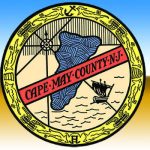WILDWOOD – Why do people go to church? Is the church a building, the congregation, or the essence of seeking the Divine?
Pastor Mark Bruesehoff, of Holy Trinity Lutheran Church, in Wildwood, believes that the church is a combination of all three. People attend for a myriad of reasons, but he said human needs never change, spanning culture and time.
The need for answers spurred the German monk Martin Luther, in 1517. Luther’s world was riddled with war, social unrest, and the Bubonic Plague, i.e., Black Death, living side by side with the wonders of the Renaissance.
Luther questioned the political and religious corruption he saw in the Roman Catholic Church. He read the Scriptures and believed that salvation comes only from faith in Jesus Christ.
“Our theology is based on the Gospel,” Bruesehoff said, in an Aug. 17 phone interview. “It is God’s grace by faith in Jesus Christ.”
Lutheran characteristics include believing in a real presence in communion and infant baptism. Bishops and synods provide ecclesiastical structure.
The Lutheran church springs from Luther’s teachings, prompting the Protestant Reformation, which swept across Europe, in the 1500s. Germany was not a unified nation at the time, and each province aligned either with Rome or Protestant doctrine. Lutheranism also found a stronghold in Scandinavian countries.
According to state records, Swedish settlers landed, in South Jersey, in 1638, founding Swedesboro, in Gloucester County. New Jersey’s oldest Lutheran church is in Oldwick.
“Zion Church was born exactly three-quarters of a century before the birth of the U.S.,” John H. Munnich wrote, in 1939. Munnich, a historian, compiled the history of the Zion Lutheran Church, commemorating its 225th anniversary.
“Our church and our country have grown up together,” Munnich said.
Even as the English colonized New Jersey, Lutherans were permitted to practice their faith. Many Lutherans remained loyal to the British crown during the American Revolution. After the War for Independence was won, Lutherans added to the American “melting pot” as more immigrants from Germany and Scandinavia arrived throughout the 18th and 19th centuries.
When did Lutherans Arrive in Cape May County?
According to local history, Swedish fishermen and boat builders settled in historic Anglesea during the late 1800s, bringing Lutheranism with them. Jeff Elliot, pastor, Cape May Lutheran Church, said his great-grandparents were part of North Wildwood’s earliest days. In 1906, Holy Trinity was built, in Wildwood.
In 1910, Our Savior Lutheran Church had its beginnings in a Sunday school organized by Anna Salvesen. As Stone Harbor grew, so did its spiritual need, and the church was built, in 1915.
“The Lutherans have been here for several generations,” Elliot said. He attended Holy Trinity as a child and is proud of his family’s roots, in Cape May County. The Cape May Lutheran Church is a “daughter” of Holy Trinity, along with Holy Spirit Lutheran Church, in Villas.
According to Elliot, Holy Trinity was mostly Swedish, mingled with German and Danish settlers. These German and Scandinavian immigrants comprised the backbone of the Wildwoods’ fishing industry.
“I knew I wanted to be a pastor as a very young man,” said Elliot, who served as a Navy chaplain before entering the ministry.
Elliot served as pastor, in Cape May, since September 2006. His daughter held the pastorate, in Stone Harbor, until relocating to California, with her husband. His son currently serves as a pastor in the Swainton area.
Elliot shared his “differences” with Lutheran theology, i.e., baptismal regeneration. Lutheran doctrine claims that baptism is “a means of grace” and is linked with one’s salvation.
“I’ve always struggled with that,” Elliot said. “I’m a universalist.”
He described faith as “waking up to the fact that God loves you.” Despite the differences, Elliot is committed to his faith.
Many Lutherans lapsed into “Quietism,” when Adolf Hitler took power in Germany, according to Elliot. Since World War II, the denomination embraced the social gospel, seeking social change.
“We are deeply involved,” Elliot said, referring to community involvement. The members of Cape May Lutheran seek to make Cape May a better place for everyone through social programs and hosting events.
“The pandemic (COVID-19) has changed the church,” Elliot said. “We need to find new ways to meet.”
Elliot contends that not meeting in person is the most “loving thing for our neighbor.” Both he and Bruesehoff are thankful for technology and social media but miss in-person fellowship. Holy Trinity is holding public services again, in compliance with government guidelines.
Though COVID-19 poses challenges, there are “silver linings,” according to Bruesehoff. He is encouraged by the interaction and number of people participating in online services.
Hard times bring tough questions to the surface. Faith provides stability.
“They are a solid group of people,” Bruesehoff said, describing Holy Trinity. He serves as an interim pastor and is semi-retired after pastoring, in Ocean City.
“Pastors never retire,” Bruesehoff said. A native of Minnesota, Bruesehoff’s family is rooted in the Lutheran church. He and his family came to Ocean City, in 1995, and live in Upper Township.
In times of personal and national crisis, Bruesehoff said it is imperative that churches examine why they do what they do and their beliefs.
People of faith can’t rest upon triumphs of the past alone. One must bring those triumphs, doubts, and perplexities with them into the future, seeking to make a lasting difference at home and beyond.
Faith Matters is an ongoing series exploring the connection between individuals and their faith, impacting their families, community, and beyond. Those with a story of faith to share should contact the writer at rrogish@cmcherald.com.
North Wildwood – Not only is America being run by a South African, but a Russian is pulling all the international strings. Let me help you my MAGA neighbors, America is NOT great at all right now and the World has…








